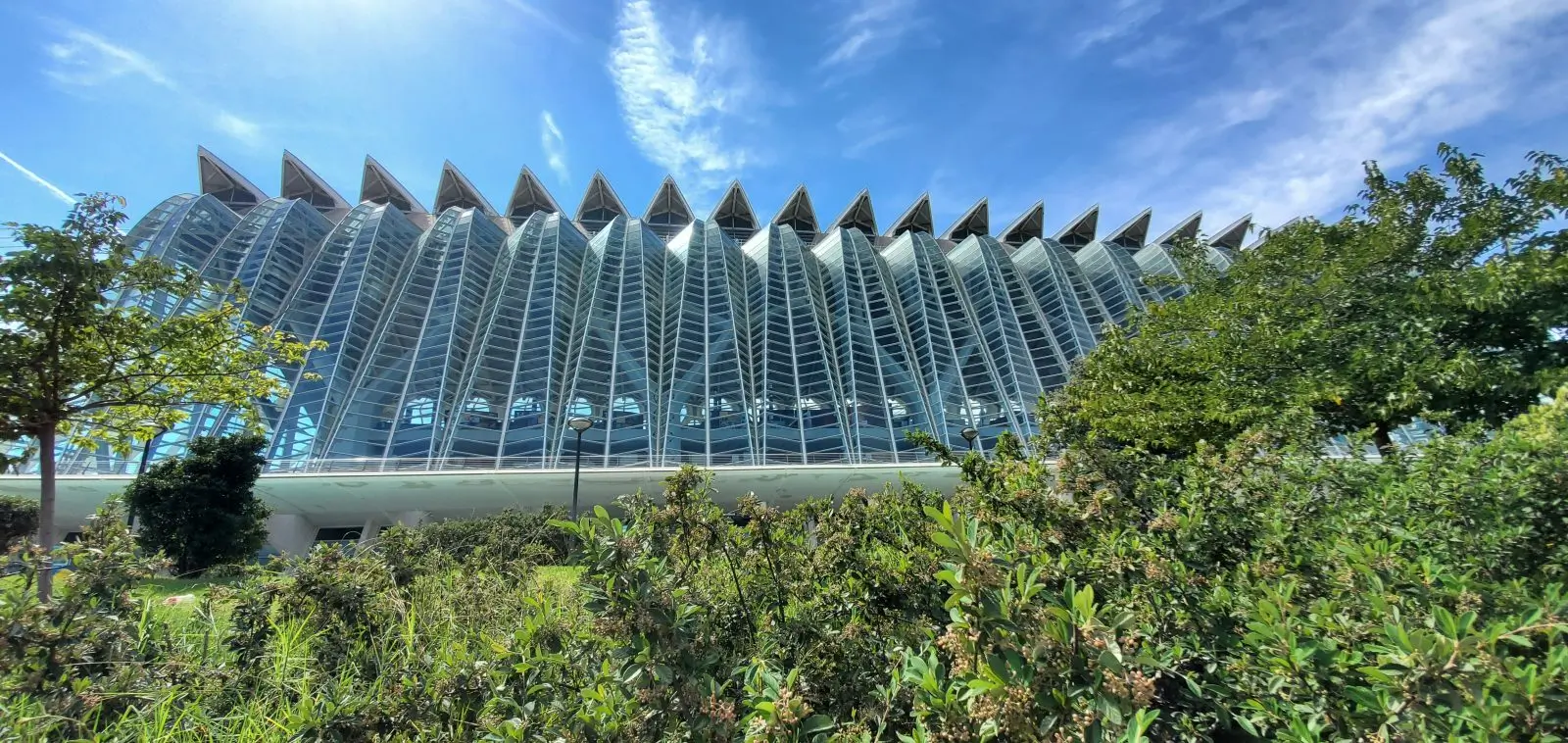During our visit to Valencia, we were amazed by the city, its local life, its beaches and its many monuments. One of them stands out from the rest, as you might have guessed, and that’s what we’re going to talk about today: Sainte-Marie Cathedral.
This emblematic building, whose “El Miguelete” bell tower dominates the heart of old Valencia, is a must-see in our opinion. To explore this cathedral is not simply to visit a monument, but to discover its history and embrace its rich religious and cultural tradition.
Maybe I’m overdoing it, but once you’ve visited it, you too will understand what I mean.
What to see
To enter Sainte-Marie Cathedral is to open a door on the history of this unique place. First stop, the bell tower known as “El Miguelete”. At 51 metres high, it is not only a city icon, but also offers a splendid 360-degree panorama of the entire city. We love it, even if I’m afraid of heights.
The 207 steps may seem daunting (our daughter counted them up to 12), but the reward at the top is well worth the effort: a breathtaking view of the whole city. It’s certainly one of the best views of the city of Valencia and its blue conical roofs. Floriane even went back there on her second visit to Valencia – when you love it, you don’t count!
A little surprise before you get to the top: the stairs are so narrow (you can’t fit two people on them) that there’s a traffic light to go up and down the last flight of steps.




Then head for what many believe to be the Holy Grail. It’s true, Saint Mary’s Cathedral is home to the Holy Chalice, a priceless relic that attracts pilgrims from all over the world.

And don’t forget to take the time to admire the cathedral’s remarkable architecture. The harmonious blend of Valencian Gothic, Romanesque and Baroque creates an aesthetic that fascinates lovers of art and architecture. Every column, every sculpture, every detail seems to tell a story. That’s why we recommend you take your time for this visit.
Organizing your visit
Allow around 1 hour to visit the interior of the cathedral, then 45 minutes to climb to the top of the tower and enjoy the view. The cathedral is generally open every day from 10am to 6:30pm, until 5:30pm on weekends outside summer.
It’s always a good idea to buy tickets in advance to avoid waiting times, especially during the high season. You can buy them online for 9 euros, with audio guide included. We also recommend visiting early in the morning. Not only will you avoid the crowds, but the morning beauty of the cathedral is breathtaking.
Our advice: come before 9:30 am the visit of the cathedral is free! So we advise you to set your own alarm clock, or have a child do it for you.

The history of Sainte-Marie Cathedral
The history of this cathedral begins in 1262, when construction began. At the time, the cathedral was built on the foundations of a former mosque, bearing witness to the cultural and religious influences that intertwined in the region.
Over the centuries, the cathedral has undergone numerous modifications to achieve its current appearance, reflecting the evolution of architecture and artistic taste through the ages. Architectural highlights include the 14th-century Gate of the Apostles, as well as the Palau Gate, an example of the Romanesque style, and some Mudejar elements, which add to the cathedral’s architectural richness.
The Micalet Tower, an emblematic icon of the cathedral, stands proudly nearby, adding a touch of grandeur to the ensemble.

A priceless treasure has been kept in the cathedral since March 18, 1437: the Holy Chalice . This relic is reputed to have been used by Jesus Christ and his Twelve Disciples at the Last Supper. According to historical documents, Saint Lawrence, a deacon of Pope Sixtus II, sent it from Rome to his parents in Huesca, Spain, to protect him from persecution by the anti-Christian Roman Emperor Valerian. Later, the kings of the Crown of Aragon took possession of it, and John II finally handed it over to Valencia Cathedral. This precious relic has added a spiritual and historical dimension to the cathedral’s history.
In recognition of its cultural and architectural importance, Valencia Cathedral was classified as a Site of Cultural Interest in Spain on June 3, 1931. This classification underlines its special status among the country’s historical treasures, making the cathedral a living witness to Valencia’s history and culture.

How to dress?
As in all places of worship, light clothing should be avoided, and shoulders and legs should ideally be covered. Silence is recommended, and photography must be practiced with discretion, especially during religious services.
What to do around the Cathedral
After exploring Saint Mary’s Cathedral, we invite you to immerse yourself further in the atmosphere of Valencia and stroll leisurely through the pedestrian streets.
Just a few minutes’ walk away, you’ll also find the Lonja de la Seda, an extraordinary example of the Valencian Civil Gothic style. This UNESCO World Heritage site is well worth a visit.
We also recommend a visit to the cité des sciences in the Parc Turia, to enjoy the various museums, and the beautiful Valencian beaches.



Feel free to leave us a note below to let us know if you are planning this trip, ask any questions or share on social networks(our Instagram) we will answer you with great pleasure!

